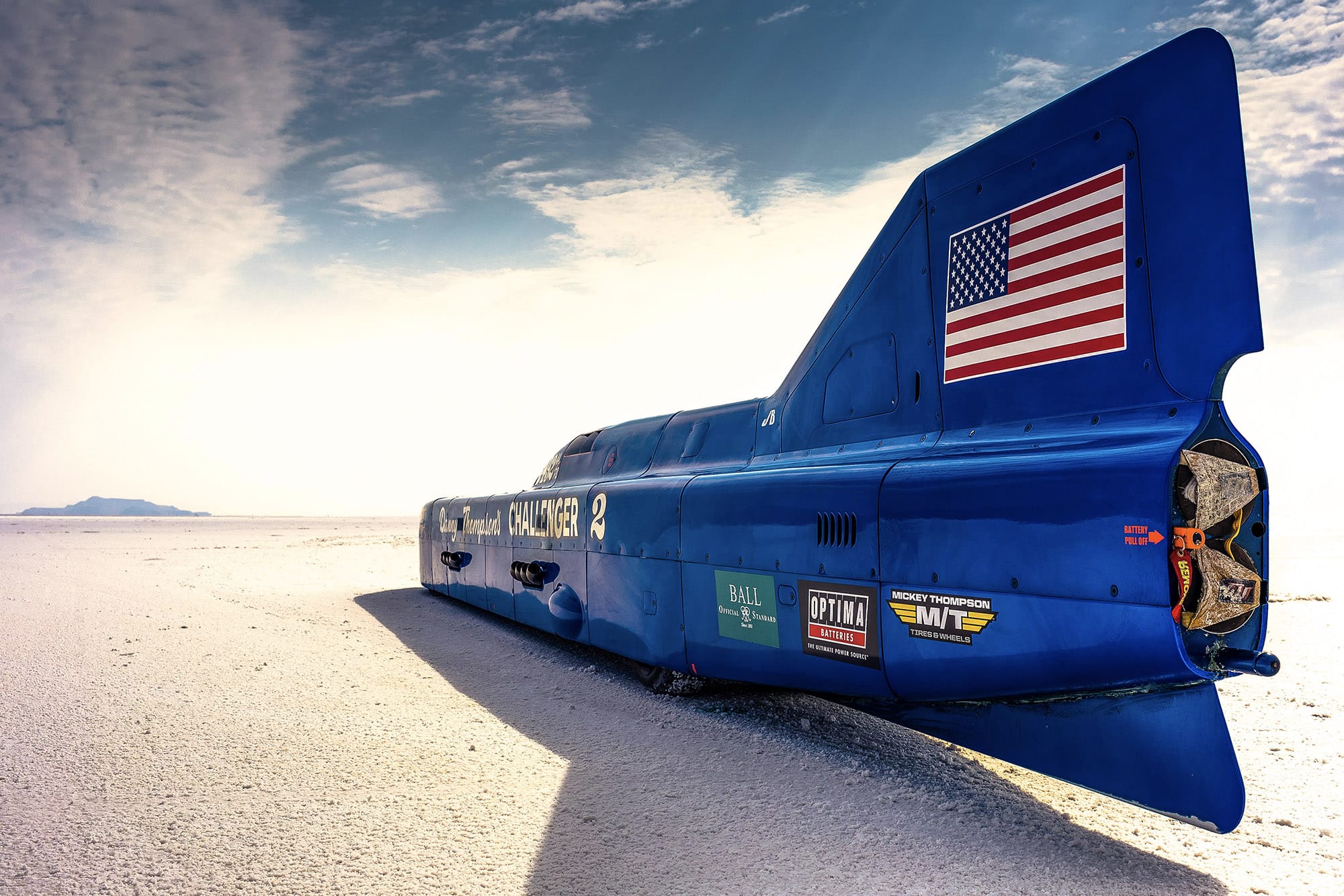The Challenger 2 Streamliner has sold at auction for $561,000 (£432,000), just over a year after becoming the fastest piston-driven vehicle of all time
Danny Thompson took the Challenger 2 to 448.757mph at the Bonneville Salt Flats, 50 years after his father Mickey attempted the same feat, completing an emotional — and tragic — tale.
Initially dubbed the “Mickey Thompson Autolite Special”, the four-wheel drive land speed record car is now powered by two nitromethane-fuelled Chrysler Hemi V8 engines, producing some 5,000 horsepower, and holds the record for fastest naturally aspirated piston-powered vehicle.
It was described by Sports Illustrated in 1968 as “a rolling textbook in sophisticated automotive design” and was auctioned earlier this month at the Mecum Kissimmee sale in Florida.
The first Challenger was created by Mickey Thompson in 1960 and completed a 400mph+ run, putting it on course to break the record. But a failure prevented him from making the return run and setting a new speed record.

Eight years later, Thompson would be back at Bonneville with a second Challenger.
Built in a collaboration between Mickey Thompson and Kar Kraft, the project attracted backing from Ford and a number of industry specialists.
Indycar constructor Quinn Epperly was brought on board to build a portion of the chassis while the rest was constructed by a team at MT Advanced Engineering.
But after a promising first test at Bonneville, arriving rain prevented any record attempt and Ford pulled out of the project.
The car was back out of storage 20 years later, but tragedy prevented another attempt as Mickey and wife Trudy Thompson were murdered in front of their home in California.
Challenger 2 would remain in storage until Danny and his new team brought it back to Bonneville and set the record at 448.757mph in 2018, as shown in the video above.
The car was upgraded and modernised by Danny in order to meet Southern California Timing Association standards in his attempt.
Two new Brad Anderson 500 Cl dry-block, A-fuel-type Hemi V8 engines have replaced the original Ford 427 SOHC’s and new engine mounts, cockpit controls, air tanks and air shifters were added.





